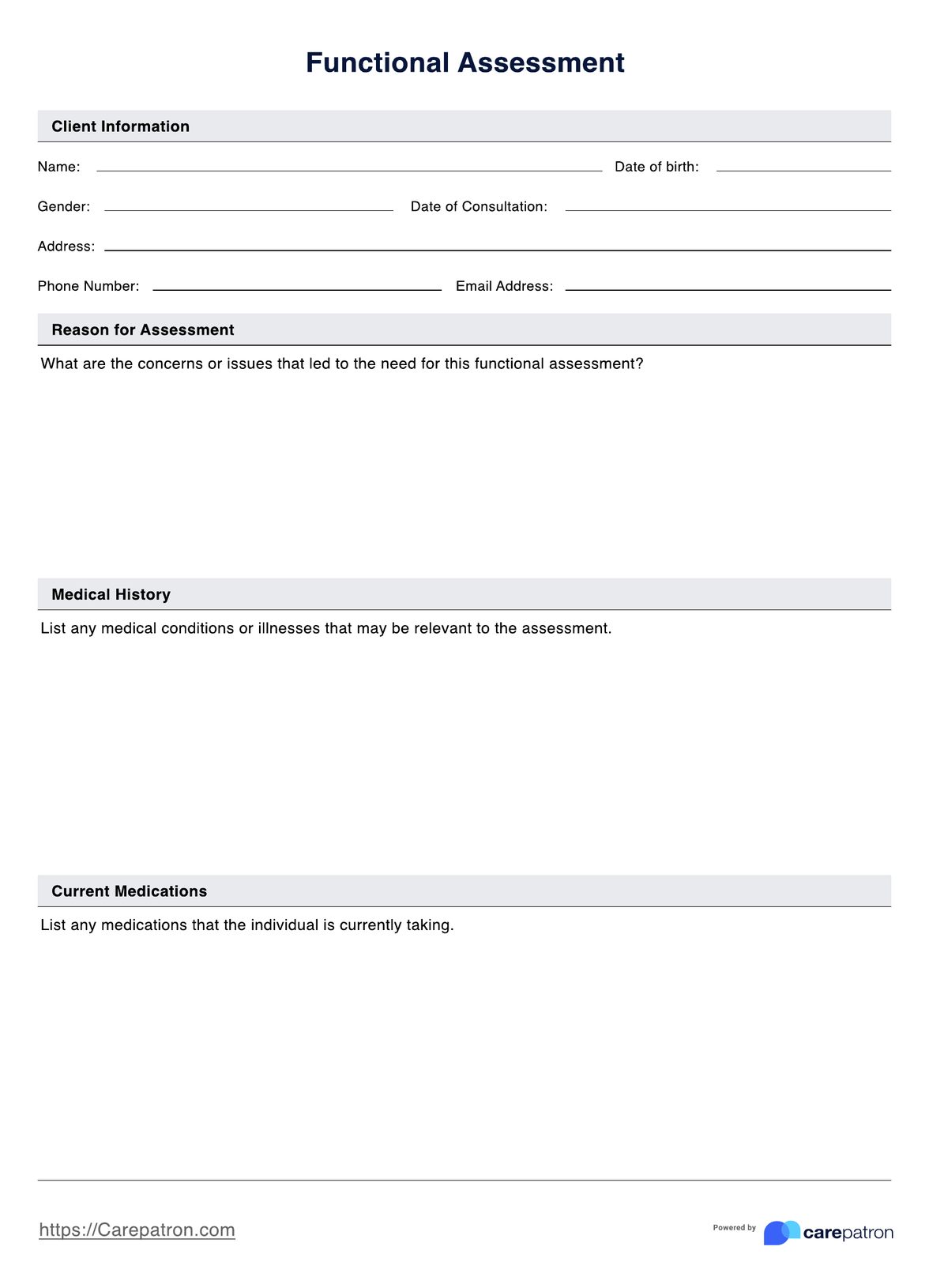A Functional Assessment can be conducted using various methods, including observation, interviews, standardized tests, and performance-based assessments.

Functional Assessment
Functional assessment evaluates an individual's abilities and limitations in daily life. Discover how it can help improve their quality of life today.
Functional Assessment Template
Commonly asked questions
Common areas evaluated in a Functional Assessment include mobility, balance, strength, endurance, cognition, communication, and activities of daily living such as grooming, dressing, and eating.
Interventions recommended based on Functional Assessment results can include physical therapy, occupational therapy, speech therapy, adaptive equipment, home modifications, and other support services to help individuals improve their functional abilities and quality of life.
EHR and practice management software
Get started for free
*No credit card required
Free
$0/usd
Unlimited clients
Telehealth
1GB of storage
Client portal text
Automated billing and online payments











